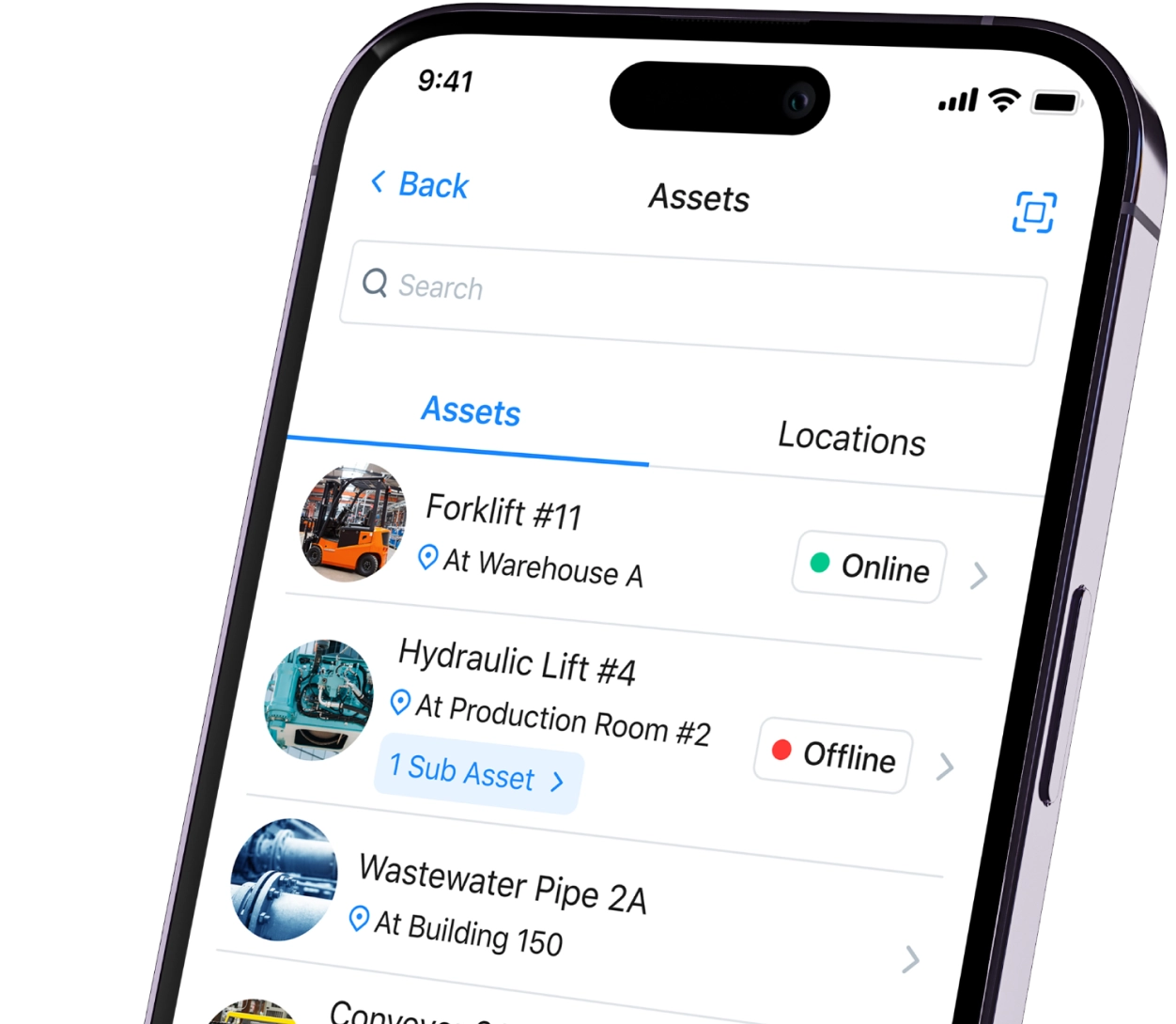Facility managers (FMs) are responsible for asset management, property management, and maintenance management. They ensure that organizational assets, systems, and pieces of equipment remain in optimal operating order so organizations can remain cost-effective and in business.
FMs may oversee one location or several locations with varying responsibilities depending on the industry. However, no matter the facility, the primary goal remains the same: to run effective facility maintenance and operations programs to ensure the organization meets legal, safety, and health requirements. This involves completing daily asset inspections and putting proactive and reactive maintenance strategies in place.
Facility Manager Routine Responsibilities
- Implementing proactive maintenance plans
- Implementing emergency maintenance plans
- Ensuring compliance with regulatory requirements, safety standards, and standard operating procedures (SOPs)
- Maintaining inventory of replacement parts
- Preparing maintenance reports for leadership teams
- Negotiating contracts with third-party service providers
- Developing plans for improving organizational efficiency and cost-effectiveness
- Supervising maintenance staff
- Promoting safe working environments
- Identifying new ways to reduce downtime, decrease costs, and increase efficiency across the board
In general, FMs report to the director of operations, administrative manager, or assistant general manager. However, in small organizations, they may report directly to the CEO.
Facility Manager Skills
A large part of this professional’s daily routine involves collaborating with team members from various departments. In most cases, the role divides time between having interpersonal interactions, solving impromptu problems, and strategizing plans to increase efficiency. The most important skills emphasized within facility management job descriptions include:
- Leadership and people management skills
- Project management skills
- Analytical skills
- Communication and interpersonal skills
- Computer literacy
- Critical thinking and decision-making skills
- Problem-solving skills
- An eye for innovation and creativity
- Quality and risk management skills
- Ability to cultivate long-lasting relationships with clients
- Conflict resolution skills
- Working knowledge of mechanical, electrical, and plumbing systems
- Ability to prioritize workloads
- Procurement and negotiation skills
- Time management skills
Additionally, FMs should possess a general understanding of various management software programs such as computerized maintenance management systems (CMMS). Why? Because today’s top organizations are increasingly leveraging technology to streamline business operations, reduce downtimes, and enhance productivity.
Frequently Asked Questions
Why Do Organizations Need a Facility Manager?
Any organization that invests in a substantial amount of assets needs to hire a facility manager. Depending on the industry, those assets could be worth tens of thousands, if not millions, of dollars. Physical assets include both pieces of equipment, buildings, and outdoor properties.
Facility managers help companies improve their asset life cycles, streamline processes, and ensure their investments are well-kept. The benefits of hiring a facility manager include the following:
- Reduced Maintenance Costs: A good facility manager will move the organization from reactive maintenance to proactive maintenance. This reduces unplanned downtimes and saves costs.
- Improved Workplace Safety: Facility management focuses on a safe working environment for employees. Facility managers ensure that HVAC systems, smoke detectors, and fire suppression equipment are installed and properly functioning.
- Improved Operational Efficiency: Facility managers help to detect problems early through regular equipment inspections. Solving problems such as the accumulation of dirt, leaks, and worn-out components avoid breakdowns and improves asset efficiency.
- Compliance With Regulatory Requirements: There are industry, local, state, and federal requirements that every organization must adhere to. Facility managers maintain inspection and maintenance records that can be used to prove compliance.
- Engaging and Productive Environments: Facility managers ensure that everything is working as it should. Employees are likely to be motivated and have a positive attitude when working with well-run and operational systems. Constant breakdowns can have a major impact on workplace morale.
- Extended Asset Lifecycle: Good facility managers ensure that all equipment components are in good working condition. This puts less stress on the entire asset and extends its lifespan. Proactive maintenance also helps to improve the asset lifecycle.
- Improved Customer Satisfaction: When everything else runs smoothly, the rest of the organization can focus on their areas of production. This helps to improve the organization’s production and service delivery. Quality products and services are key to improving customer satisfaction.
What Type of Companies Need a Facility Manager?
Large organizations with multiple locations mostly employ facility managers. It’s more effective and cost-efficient for large organizations to have an in-house facility manager to oversee their operations.
Smaller organizations typically disperse FM responsibilities amongst several staff members. Common organizations that rely on facility managers include manufacturing plants, scientific research centers, automakers, and aviation companies, among others.
Job Outlook for Facility Managers
According to Payscale, facility managers earn an average of $69,859 per year. However, the amount varies by location, organization, industry, education, and experience level. However, cities such as Washington, Los Angeles, New York, Seattle, Boston, San Diego, and Dallas pay higher than the national average. Some of the best-paying employers in the field are CBRE Group, Jones Lang LaSalle, Cushman & Wakefield, Inc., and Hines Interests Ltd Partnership.
The U.S. Bureau of Labor Statistics projects a 6 percent job growth for facility managers by 2029. It’s worth mentioning that FMs are categorized under administrative services managers. Those who are knowledgeable about management software are expected to have better prospects.
Certifications and Training
Facility managers are expected to have a bachelor’s degree in fields such as business, accounting, and management. Additionally, those with entry-level experience are usually shown preference.
Since facility management is a competitive field, securing additional training and certifications is worth considering. Some of the most common certification programs for facility managers include:
- Certified Facility Manager (CFM): This certification is offered by the International Facility Management Association (IFMA). It equips facility managers with skills in key areas of facility management such as project management, risk management, sustainability, and operations and maintenance, among others. Other certifications by the institution include Facility Management Professional (FMP) and Sustainability Facility Professional (SFP).
- Certificate in Facility Management: Offered by the Washington University Professional & Continuing Education program, this certification targets facility managers interested in managing residential and commercial facilities. It’s suitable for inexperienced facility managers as it provides real-world projects to help boost their portfolios.
Additionally, Building Owners and Managers Institute (BOMI) International offers a Facilities Management Certificate program. Facility managers interested in industry-specific certifications can enroll in programs offered by institutions such as the Accreditation Board for Engineering and Technology, the American Society of Civil Engineers, and CompTIA Security+.

Caroline Eisner
Caroline Eisner is a writer and editor with experience across the profit and nonprofit sectors, government, education, and financial organizations. She has held leadership positions in K16 institutions and has led large-scale digital projects, interactive websites, and a business writing consultancy.


